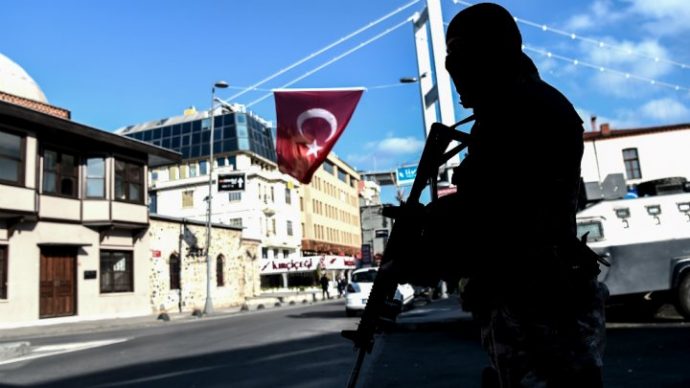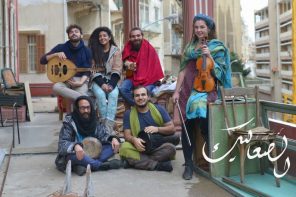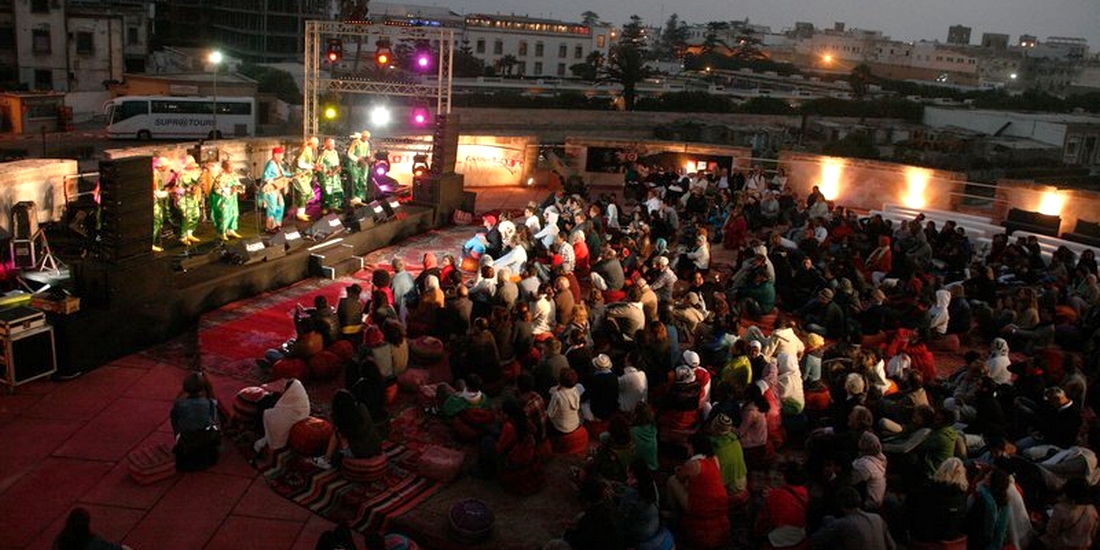The new year evening in Istanbul came in bloodily, with a terrorist attack targeting a nightclub and the surrounding shops.
The attack was random and aimed to have the biggest number of causalities. However, the treatment of the story on social media sparked a debate about the society’s opinion and revealed maybe more about the mentality of the Arab society. It could be even revealing some dangerous symptoms of extremism.
Laian a martyr or not?
Laian Zaher, a 19 years old Israeli of Palestinian origin, was one of the victims of the attack. Laian was visiting Turkey with her friend to celebrate the New Year’s Eve. Little that she knew it will be her last trip as she was murdered during the attack. Laian along with all the victims were considered as martyrs. According to Islam, a martyr is someone who died while: fighting for his nation or country, being targeted by a terrorist attack (including a rubbery), working, a woman being on labor, burned, or died during a plague. A martyr is considered the ultimate honor in Islam, thus the martyr is considered sacred. The Palestinian media over the social medias focused on her story and the follow up of her death. Surprisingly, her death reaction was least to say shocking. Some people were furious over her presence in a nightclub for one, and for traveling on her own only for leisure purposes. Comments on articles or news, covering her death, were slamming her and some even seen it as “deserved punishment”. Others on the other hand took her defense, considering her a martyr of terrorism. Most of the viewers condemned the extreme opinions that they consider to be out of Islam.
Sign of extremism, is it?
How could one blame the victim of a terrorist attack? Are we judged upon what we dress, eat, dance or whether we celebrate a non-Muslim holiday? It is shocking to see how people demonized a victim just for not following what they consider an appropriate lifestyle. We can endure that look of resentment someone could have over a short dress or drinking alcohol, but it seems that things escalated from a look to a public expiation. What is even more shocking is going from maybe a little rebuke, to gloat over the death of innocents just for having a non-strict Muslim lifestyle – in their opinion.
A similar incident happened in Jordan over the same attack’s victims. Some social media’s commentators also targeted the victims of the attack for hanging out in a nightclub at New Year’s Eve. Jordanian government had a different response to this phenomena. The electronic crime combat police department announced tracing all the hateful and insulting comments back to pursue the commentators. The Jordanian electronic crime law punishes for hateful speeches, insults and racism. This is one of the first times an Arab country takes such measures to fight extremism. Actually, 50 Imams were either fired or suspended over their offensive comments of the victims. While the court is on the course preparing the suit cases against the offensive commentators over the social media. Some other Arab countries had the same reaction as well, making it a general phenomena that is hard to trace and study.
Is it Islam to blame?
As we can see, the criticism focused on what they claim to be “Islamic reasons” such as lifestyle and nightlife. The main argument was that Islam does not allow dancing or mixing as well as celebrating non-Muslim holidays such as Christmas and New Year. They took the extra step by thinking that whoever does these “sins” deserve death. Such idea could be considered the core of extreme mentality or what leads to it under the right circumstances.
But does Islam really say so? Actually not at all. In Islam, death penalty is only and only related to murder according to the famous Muslim scholar Adnan Ibrahim. Important to realize that in case of forgiveness by the victim family, the sentence is waived. So, where does the idea of killing come from? It is hard to say exactly but it could be due to the current religious teaching curriculum and some extreme Islamic sects. The same sects that denies the mixture of genders for no obvious reason and prohibits celebrating the non-Muslim holidays. For example, in Saudi Arabia’s 12th grade “tawhid” Oneness of God book, they state that infidel-ism justifies killing. Not forgetting that Ibn Taymiyyah’s – who is considered a main source of teaching in many Muslim countries – books have many controversial texts that allow or even encourage killing in many cases like while fighting different Muslim sects.
This incident must open our eyes on the sleeping extremism – those who did not crystallize their ideology yet – in our society that is caused by extreme religious ideas. We always knew about having some strict Muslims in our society, but never I thought the issue is that serious, giving the number of carriers of these extreme ideas. If we link this incident to the big fuzz over greeting Christians for Christmas or even celebrating it, then we can start to realize the seriousness of this phenomena. Fifteen to Twenty years ago, the Arab society was more on the moderate side, almost free from religious extremism except for fanatics whom every society has in the world. These issues started to appear in the recent years following the destabilization of the Middle East – starting with the invasion of Iraq. Islam, the religion that once carried out the duty of enlightening and liberating humanity, is now suffering from extremism. The same religion that empowered women, called for mercy and peace, and fought the idea of religious supervision. Islam is the first religion to counter slavery by enacting laws to free them. It is the Muslim empire that produced the core of sciences like medicine, math and astronomy. Muslim scholars preserved and transmitted Greek philosophy books when they were prohibited in Europe, making it the biggest transmission of ideas in history. How could some Muslims interdict greeting other religions, while Islam is the first religion to embrace Jewish and Christian communities under their rule?
Counter-fighting extremism
It is more obvious that we need to address these issues sooner rather than later. The Arab society has always been blaming the West for the creation of ISIS, but can’t we see that the potentiality of carrying ISIS ideology is already there? Jordan that suffered from terrorist attacks recently decided to counter the issue and track down any signs of extremism. As mentioned above, the efforts already resulted in jailing and fining those showing extreme ideology. The result was noticeable almost immediately. A controversial Jordanian Facebook page that used to be full of hatred comments, had shown way less – almost none – hateful or aggressive comments. The result of the new law was surprisingly effective, clearing up the social media of hatred speeches. In UAE as well, it has been almost since ever the case, where you could be jailed for any violence incitement, or hateful speech. Their social media is also known to be clear of extremists and their aggressive speeches. UAE, also known for their tolerant Islamic school curriculum, is free from terrorism and extreme groups. They have a very moderate and love teaching school curriculum, and they are even reforming it to be better and better. Egypt and Al Azhar, the biggest Sunni establishment, are also living a transition period of reform and rectifying the mistakes. A lot of the teaching curriculum topics are being revise, and Al Azhar graduates – clerks – are known to be pushing for reforming the institute. Consequently, Egypt is living a phenomena of “open-minded” or “enlightening” Imams, that are trying to start an era of Islamic renaissance according to some. It is still early to assess the success of this new movement, but it sure has created a buzz that is effecting the Egyptian religious situation.
We could see a silver lining in the new generation of Islamic Scholars like Adnan Ibrahim and similar scholars – like Tariq Ramadan, Hassan Al Maliki, Muhammad Shahrur – who are always countering extremism and misinterpretation of Islamic texts. Adnan Ibrahim is definitely helping reshaping Islam as a concept and an ideology. His videos have gone viral and made its way to many houses and families. He is considered one of the most popular Imams at this time. He is famous to preach against violence, against gender segregation, expiation, and for Muslims to integrate into their societies. With these Imams, Muslims are finding their ways to a moderate lifestyle that is compatible with today’s world.
Nevertheless, these scholars lack both governmental and organizational support. They are mostly self funded, and working on their own. Adnan Ibrahim efforts are based on social media, where it is free and easy to access. He managed on his own to deliver his voice despite the sharp and aggressive criticism he received by the Slafists’ medias which are well financed and supported. It was not easy for him, and a lot of T.V. channels dedicated a lot of their time to attack him while hosting Imams of extreme views. They attacked him and his alikes (Hassan Al Maliki). They event called for their execution. These attempts were not enough to stop or discourage Adnan Ibrahim who already managed to create a huge fan base, who admired his preach for love, peace and tolerance.
The first step to solve a problem is the diagnose. I think we are almost there, admitting the religious problem that we have, despite of a big portion of our society denying it. The second step is counter fighting and this also already started with measures mentioned above. In addition, to the new generation of Muslim Clerks who managed to attract the average Muslim with their moderate speeches. The remaining question is whether the current efforts are enough, giving that the roots of the problem still exists -poverty, Middle East political instability, social injustice-? Those problems that led for extremism even in well-developed countries like France, Germany and Britain. Time will tell, but I sure feel optimistic about those efforts that successfully made their way into a huge level of the Arab and Muslim world.








